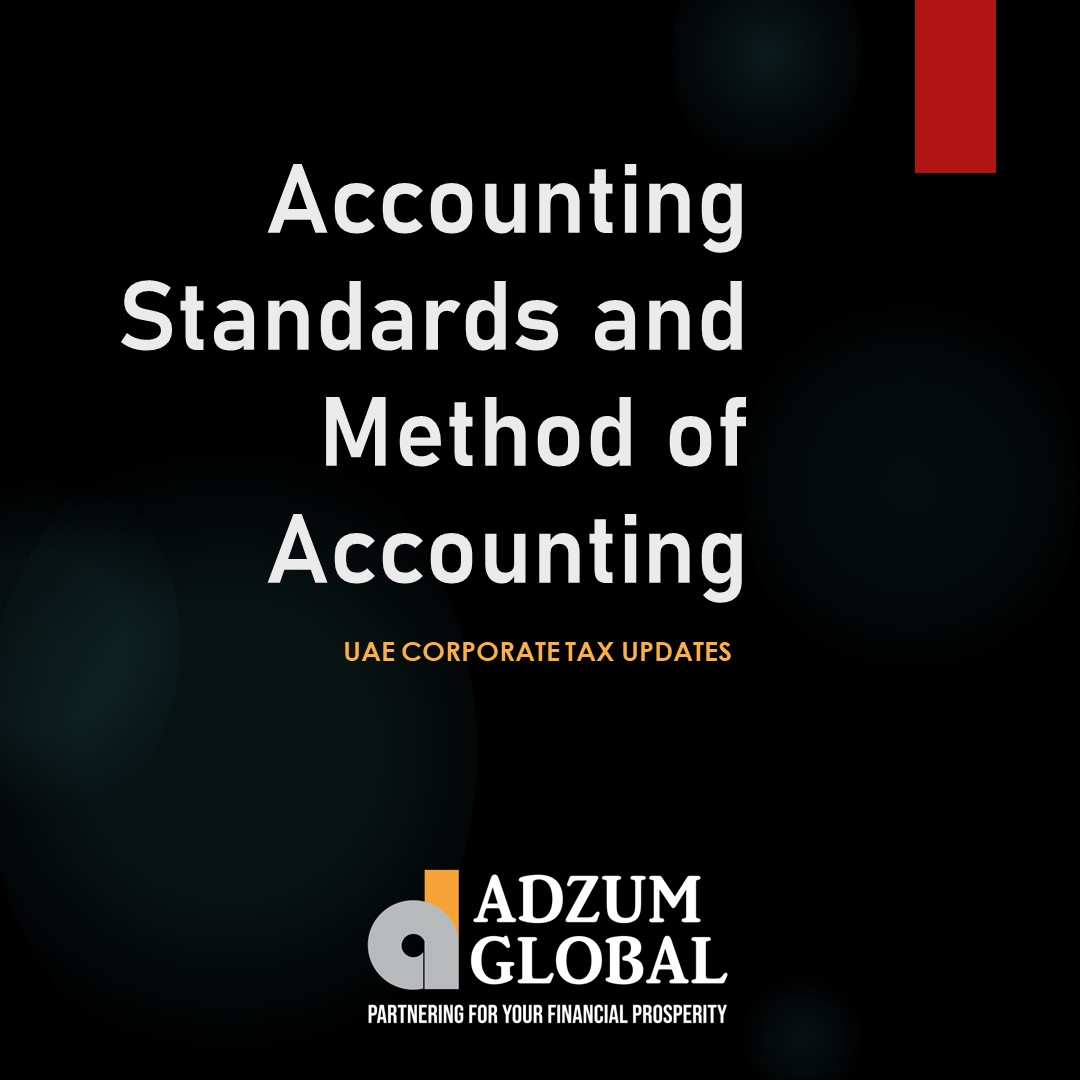Consult
Accounting Standards and Methods Of Accounting

Accounting Standards and Methods Of Accounting
An analysis of Ministerial Decision No. 114 of 2023 dated 09 May 2023
This decision clarifies three important aspects
1. Preparing Financial Statements Using the Cash Basis of Accounting
2. Applicable Accounting Standards and
3. Preparation of Financial Statement of Tax Groups
Let us discuss each of the above in detail
Preparing Financial Statements Using the Cash Basis of Accounting
paragraph (a) of Clause (5) of Article (20) of the Corporate Tax law says Minister may prescribe the circumstances and conditions under which a Person may prepare financial statements using the cash basis of accounting.
This ministerial decision says that a Person may prepare Financial Statements using the Cash Basis of Accounting, in any of the following instances:
1. Where the Person derives Revenue that does not exceed AED 3,000,000 (three million United Arab Emirates dirhams). if a person's revenue is less than or equal to AED 3,000,000, they are allowed to use the cash basis of accounting when preparing their financial statements. The cash basis of accounting records transactions when cash is received or paid out, rather than when revenue is earned, or expenses are incurred.
2. In exceptional circumstances and pursuant to an application submitted by the Person to the Authority. This means that if a person has exceptional circumstances that make it difficult for them to use accrual accounting (which records transactions when they are earned or incurred), they can apply to the Authority for permission to use the cash basis of accounting. The Authority will review each application case-by-case and determine if it is appropriate for the person to use the cash basis of accounting.
It is worth noting that while using the cash basis of accounting may be simpler for some businesses, it may not provide as accurate a picture of their financial performance as accrual accounting. Therefore, businesses should carefully consider which method is best suited for their needs and consult with their accountant or financial advisor if they have any questions.
Applicable Accounting Standards
1. The Taxable Income of each Taxable Person shall be determined separately, on the basis of adequate, standalone financial statements prepared for financial reporting purposes in accordance with accounting standards accepted in the State., a Taxable Person shall apply the International Financial Reporting Standards (“IFRS”) for the preparation of financial statement.
2. Without prejudice to the provisions of previous clause, a Taxable Person deriving Revenue that does not exceed AED 50,000,000 (fifty million United Arab Emirates dirhams) may apply International Financial Reporting Standards for small and medium-sized entities (“IFRS for SMEs”)
a taxable person who earns revenue that does not exceed AED 50,000,000 (fifty million United Arab Emirates dirhams) has the option to apply the International Financial Reporting Standards for small and medium-sized entities (IFRS for SMEs). This means that if a business or individual falls within the specified revenue limit, they can choose to use the IFRS for SMEs as their financial reporting framework.
IFRS for SMEs is a simplified version of the International Financial Reporting Standards (IFRS) designed specifically for small and medium-sized enterprises. It provides a set of accounting and reporting standards that are less complex and more suitable for the size and nature of SMEs.
By allowing the application of IFRS for SMEs, the UAE recognizes the need for smaller businesses to have a simplified and tailored financial reporting framework. This can help reduce the reporting burden and costs for these entities while still ensuring the provision of relevant and reliable financial information.
Preparation of Financial Statement of Tax Groups
In the context of consolidation of financial statements of parent and subsidiary company, the standalone financial statements of the parent company and its subsidiaries are combined to create consolidated financial statements for the tax group. This aggregation allows for a comprehensive view of the financial position and performance of the entire tax group.
However, in preparing these consolidated financial statements, transactions between the parent company and its subsidiaries are eliminated. This means that any internal transactions, such as sales, purchases, or loans between the parent company and its subsidiaries, are not considered for the purpose of tax consolidation. This elimination of internal transactions ensures that the consolidated financial statements reflect only the transactions with external parties and provide an accurate representation of the tax group's financial position. The elimination of transactions is in line with clause (1) of article 42 of the Corporate Tax Law.
Disclaimer: The information provided in this article is for general educational purposes and is not intended to serve as professional advice, whether financial, legal, tax-related, or any other field. Laws and regulations can change, and individual circumstances can vary widely. Relying solely on the information in this article for making important decisions is not recommended, and we disclaim any liability for actions taken without seeking appropriate professional consultation.
